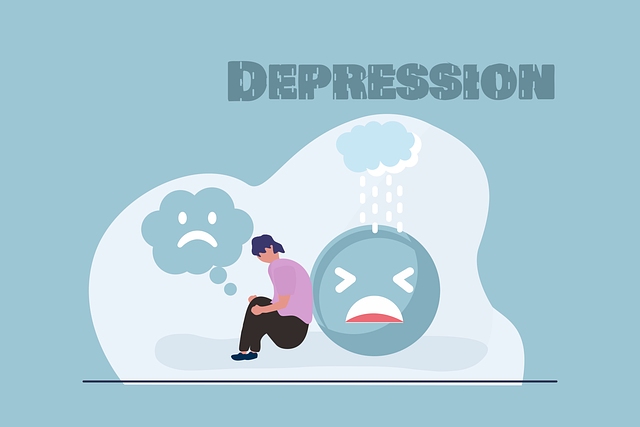Mental health policies are crucial in enhancing access and quality of care for bipolar disorder patients. Effective interventions include medication management, psychotherapy, lifestyle adjustments, mindfulness meditation, crisis intervention, and burnout prevention. Integrating these evidence-based practices leads to superior therapy tailored to individual needs. Challenges in the current system highlight the need for comprehensive solutions, advocacy, and cultural sensitivity. Mental health advocacy campaigns have advanced treatment through awareness raising and policy changes. Future policies must prioritize equitable access to superior bipolar disorder therapy, leveraging digital health solutions and community initiatives for improved management and well-being.
Mental health policy plays a pivotal role in shaping access and quality of care for disorders like bipolar disease. This analysis delves into the intricate relationship between mental health policies and their profound impact on bipolar disorder therapy. We explore current gaps in treatment, examine successful advocacy campaigns, and outline future strategies to ensure every individual receives superior bipolar disorder therapy. By understanding policy dynamics, we can advocate for systemic changes that ultimately enhance patient outcomes.
- Understanding Mental Health Policy and Its Impact on Bipolar Disorder Therapy
- The Current Landscape: Gaps in Treatment for Bipolar Disorder
- Advocacy Strategies for Improving Mental Health Services
- Case Studies: Successful Advocacy Campaigns for Superior Bipolar Disorder Care
- Future Directions: Ensuring Access to Top-Tier Bipolar Disorder Therapy
Understanding Mental Health Policy and Its Impact on Bipolar Disorder Therapy

Mental health policies play a pivotal role in shaping access to and quality of care for bipolar disorder, a complex mental health condition characterized by extreme mood swings. Effective policy interventions can ensure that individuals with bipolar disorder receive the comprehensive treatment they need, which may include medication management, psychotherapy, and lifestyle adjustments like regular sleep schedules and stress reduction techniques.
One such technique gaining traction is mindfulness meditation, supported by research as a valuable adjunct to traditional treatments. Crisis intervention guidance and burnout prevention strategies within mental health policies are also crucial, as bipolar disorder requires continuous support to manage acute episodes and prevent relapse. By integrating these evidence-based practices into policy frameworks, we can work towards improving outcomes for those living with bipolar disorder, ultimately aiming for superior bipolar disorder therapy that is accessible, effective, and tailored to individual needs.
The Current Landscape: Gaps in Treatment for Bipolar Disorder

The current landscape of mental health care reveals significant gaps when it comes to treating bipolar disorder, a condition that affects millions worldwide. Despite advancements in psychological and pharmacological interventions, many individuals still struggle to access superior bipolar disorder therapy tailored to their unique needs. This gap is further exacerbated by the often-complex interplay between bipolar symptoms, comorbidities, and life stressors, which can hinder effective treatment planning.
The need for comprehensive solutions is evident, especially when considering the impact of untreated or inadequately treated bipolar disorder on individuals’ daily lives. Without proper support, many face challenges in managing their symptoms, maintaining stable moods, and achieving optimal mental wellness. Trauma support services, emotional intelligence-based interventions, and innovative approaches like Mental Wellness Podcast Series Production can play a pivotal role in filling these gaps, offering new avenues for effective treatment and improved quality of life for those affected by bipolar disorder.
Advocacy Strategies for Improving Mental Health Services

Advocacy plays a pivotal role in shaping mental health policies and ensuring access to quality services for all. One effective strategy is to highlight and advocate for evidence-based practices, such as superior bipolar disorder therapy models, that have proven successful in managing complex mental health conditions. By promoting these innovative approaches, advocates can drive changes in healthcare systems to offer more personalized and effective treatments.
Additionally, fostering cultural sensitivity in mental healthcare practice is essential. This involves advocating for policies that support diverse communities and address unique cultural barriers to access. Resilient mood management strategies tailored to different cultural contexts can improve patient outcomes. Through advocacy, we can push for a more inclusive and responsive mental health care system, ultimately enhancing overall well-being and recovery for individuals facing challenges like bipolar disorder.
Case Studies: Successful Advocacy Campaigns for Superior Bipolar Disorder Care

Mental health advocacy campaigns have successfully shed light on the importance of proper care and treatment for bipolar disorder. These initiatives often focus on raising awareness and pushing for policy changes that prioritize superior Bipolar Disorder Therapy. One notable example involves community-driven efforts to integrate holistic approaches, including self-care routine development and practices that emphasize mind over matter principles, into standard treatment protocols. By combining advocacy with empirical data, these campaigns have led to improved access to specialized therapists, enhanced medication options, and more comprehensive support systems for individuals living with bipolar disorder.
Additionally, case studies highlight the impact of grassroots movements where patients and their allies advocate for better resources, research funding, and insurance coverage for superior Bipolar Disorder Therapy. These efforts have resulted in policy shifts, increased public understanding, and the integration of innovative treatment modalities. Through persistent advocacy, individuals with bipolar disorder are receiving more personalized care, leading to improved symptom management, enhanced quality of life, and reduced stigma associated with mental health conditions.
Future Directions: Ensuring Access to Top-Tier Bipolar Disorder Therapy

As we look towards the future of mental health policy, ensuring equitable access to superior bipolar disorder therapy must be a top priority. The current landscape reveals significant disparities in treatment availability and quality, with many individuals struggling to receive the comprehensive care they need. By integrating evidence-based practices and innovative therapeutic approaches, such as those that focus on inner strength development and confidence boosting, we can enhance the effectiveness of bipolar disorder management. Mental Health Policy Analysis and Advocacy plays a pivotal role in driving these changes by highlighting best practices, challenging stigma, and advocating for increased funding and resources dedicated to improving access to superior bipolar disorder therapy.
Through robust policy interventions, it is feasible to create a more inclusive and supportive environment where individuals with bipolar disorder can thrive. This involves not only expanding the reach of specialized services but also fostering community-based initiatives that promote early intervention and long-term recovery. By leveraging advancements in digital health solutions, we can further broaden access to superior therapy, ensuring that no one is left behind in their pursuit of mental well-being.
Mental health policy plays a pivotal role in shaping access to quality care, especially for complex conditions like bipolar disorder. By identifying gaps in current treatments and advocating for evidence-based practices, we can drive positive change. Successful advocacy campaigns have demonstrated the power of collective action, leading to improved services and better outcomes. Looking ahead, ensuring access to superior bipolar disorder therapy requires ongoing policy analysis, collaboration among stakeholders, and a commitment to addressing systemic barriers. Through continuous efforts, we can create a more supportive landscape for individuals living with bipolar disorder, ultimately enhancing their overall well-being.














